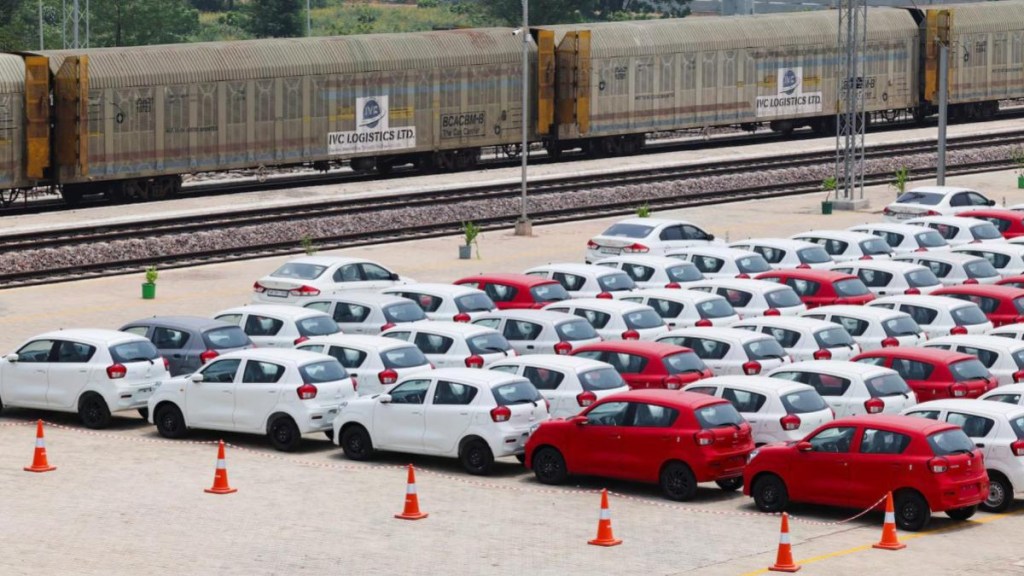India’s auto sector is in the midst of a regulatory dilemma. After the Bureau of Energy Efficiency (BEE) released a draft of Corporate Average Fuel Efficiency (CAFÉ Phase III and IV) norms, there is some confusion within the automobile industry over how the eligibility would be determined. As per Moneycontrol.com,the Society of Indian Automobile Manufacturers (SIAM) have reached a deadlock after OEMs failed to reach consensus on small cars.
FinancialExpress.com could not however independently confirm the news.
The new CAFÉ norm will be implemented from April 1, 2027, and will remain in force till March 31, 2032. However, the government has kept space for future adjustments and has invited opinions from a wide range of industry bodies. Carmakers are now divided over if it should be determined by vehicle weight or affordability?
Carmakers clash over weight-based relaxation for small cars
According to a Moneycontrol report, Maruti Suzuki, Toyota, Honda and Renault — which together held 49% of India’s passenger vehicle market as of September 2025 — are supporting a Bureau of Energy Efficiency (BEE) draft that proposes weight-based relaxation for smaller cars under the upcoming CAFÉ 3 norms.
However, rivals such as Tata Motors, Hyundai, Mahindra & Mahindra and others have opposed the idea, arguing that linking compliance only to vehicle weight could distort the market and unfairly disadvantage manufacturers that operate across multiple segments.
The upcoming CAFÉ 3 norms, tighten the fleet-average CO₂ emission target to 88.4 gm/km — sharper than the earlier proposed 91.7 gm/km and significantly below the CAFÉ 2 requirement of 113 gm/km. Automakers that fail to meet the new targets will face steep penalties.
SIAM meeting stalls as automakers fail to agree on criteria for small cars
Moneycontrol report said discussions within the Society of Indian Automobile Manufacturers (SIAM) have reached a deadlock. “Few OEMs have not agreed to a consensus on small cars. Among the various proposals discussed within SIAM, one relates to the price of the car for qualifying for the norms,” a senior executive at a top-four carmaker told Moneycontrol.
Another senior industry official said affordability must also be considered if weight becomes a benchmark. “If weight can be considered, we have argued that affordability should also be a rightful consideration. The price gap between an average two-wheeler and the entry-level four-wheeler is 3.5–4x,” he said to Moneycontrol. Industry representatives also noted that lightweight vehicles are not always low-cost, with several sub-909 kg models priced close to Rs 10 lakh.
Tata Motors rejects weight-based category, calls it arbitrary
Tata Motors has taken a firm stand against weight-based categorisation. Speaking after the company’s September quarter results, Shailesh Chandra, MD and CEO of Tata Motors Passenger Vehicles, criticised the draft proposal. “There has been an effort to define an arbitrary category of small cars based on weight. We will not support this,” he said. “We have absolutely no concerns in meeting the CAFÉ norms even with a high share of small cars, and we see no justification for special concessions.”
Tata Motors, has also argued that the suggested relaxation could compromise safety. Chandra said no vehicle under 909 kg currently meets Bharat NCAP standards, and encouraging lighter cars could reverse hard-won safety improvements. This concern has direct implications for Maruti Suzuki, which offers several sub-909 kg models such as the Wagon R, Celerio, Alto and Ignis.
Chandra further said that diluting emission norms based on weight undermines safety and diverts focus from the broader shift towards sustainable mobility.
